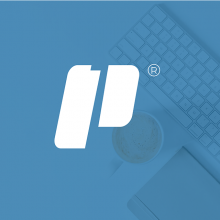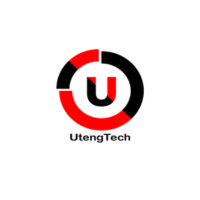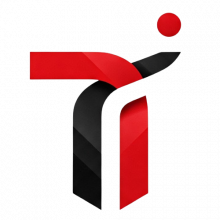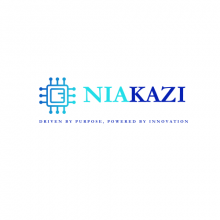
There are 10 Companies in Zimbabwe
that provide Help desk Services!
Zimbabwe’s combination of relatively stable governance, strategic location, and young and innovative population has made it an attractive destination for multinational companies. Zimbabwe’s ICT sector was worth an estimated $3.85 billion in 2025.
Discover Top IT Companies in Zimbabwe specialized in Help desk and other related services. Find the best IT service providers for your projects.
For companies seeking efficient IT support, Help Desk services provide a central point of contact for resolving technology-related issues. These services are crucial for ensuring smooth operations within organizations, as they address technical problems and answer inquiries from users.
Handpicked companies • No obligation to hire • 100% risk-free
Featured Companies in Zimbabwe
This month, the following Help desk companies managed to provide an outstanding service and support. It's worth taking a look.
We are ‘next-generation’ technology Tech Savvy Individuals, driven by our core value, that acts as our road map for the future and for our clients.
Pique Squid transcends the ordinary. This elite IT and marketing firm leverages its cutting-edge approach and unmatched proficiency to elevate.
Explore Top Help desk Companies in Zimbabwe
We providing a wide range software development, IT infrastructure management, website development, website design, digital marketing, bulky sms, email
Tyflex Investments is a Zimbabwean conglomerate offering cutting-edge tech solutions, including ERP, VoIP, and POS systems
Your trusted partner for innovative IT and software development solutions.
Trusted software develoment company with over a decade of experience.
At Niakazi, we are passionate about delivering cutting-edge solutions that enhance productivity, solve real-world problems, and drive business growth
We Empower People Around The World To Succeed Through Learning
Specialist in Web design, Web hosting, Software Development Digital Marketing, SEO, Social Media Management, Microsoft 365 Licensing
Filter Help desk Companies in Zimbabwe by Cities
Find the right tech company near you or from a specific city. Some of the best companies might be located in smaller cities.
Find more Help desk companies around the world
TechBehemoths is the world's most advanced and user-friendly platform to match IT Companies with real clients without hustle.
The IT Industry in Zimbabwe: Companies, Insights & Data
Zimbabwe’s ICT sector was worth an estimated $3.85 billion in 2025. The telecommunications segment accounts for the vast majority of this, at around $256.8 million in 2024. Other important contributors are broadcasting, data center services, cloud, IT, and BPO.
Zimbabwe’s combination of relatively stable governance, strategic location, and young and innovative population has made it an attractive destination for multinational companies. Several notable firms, such as Deloitte and Orange, have offices in Harare, and some have based their entire African operations on these offices.
Why You Should Work With Zimbabwean IT Companies
Digital service providers in the cloud and BPO markets are primarily involved in the provision, rather than the development, of services, whereas Zimbabwean firms are more prevalent in the fintech and e-commerce markets. The physical technology required for the delivery of digital services is typically imported, and it is not clear that Zimbabwe could produce these products more efficiently.
A key strength in the digital services market is the acceptance of mobile services. Any consumer solution entering the market would have to be mobile-compatible. Mobile healthcare services are expected to grow particularly rapidly as the sophistication of these offerings increases.
What to Pay Attention to When Working With Zimbabwean IT Companies And Web Agencies
On the consumer side, it is vital that any proposed digital service offering be mobile-compatible due to the prevalence of mobile usage in Zimbabwe. Furthermore, smartphone penetration in the region is steadily increasing, thus increasing the sophistication of viable digital service offerings.
Given the acceptance of fintech by the Zimbabwean population, a possible route to entry in the consumer market is to acquire one of the many smaller fintech firms in the industry. This would resolve some of the primary barriers to entry, most specifically bureaucratic red tape and a lack of local knowledge.
On the corporate side, the most effective route to entry is likely through partnerships with smaller local resellers. This model is already popular in the Zimbabwean market. A key differentiating feature here will be how well the service adapts to the Zimbabwean market.
How Reliable Are Zimbabwean-based IT Companies?
Considered to be one of the biggest African IT hubs, Zimbabwean web agencies and IT companies compete only with Ethiopian ones in terms of reliability. As many foreign companies have already invested and thus developed the local IT infrastructure and industry overall, Zimbabwean IT companies find it easier than other neighboring countries to enter the global market and provide their services at accessible prices.
How Does the Zimbabwean IT Industry Relate to the Neighboring Countries?
Zimbabwe is actively trying to establish itself as a key ICT hub in the East African region. The country appears to be making good progress in this regard, helped by having a strong connectivity infrastructure and a young, innovative population. Despite this, the country currently faces considerable political uncertainty, and issues surrounding the transparency of tenders remain a major barrier to growth.
Although Zimbabwe’s score on the Global Innovation Index 2024 is not high in absolute terms, it ranks 118th in the world. This supports the conjecture that businesses, government, and consumers will be receptive to new technologies, as ICT has already had a substantial impact on the Zimbabwean economy.
Is Zimbabwe's Tech Industry Ready for 2025?
At the end of 2021, Zimbabwe announced big plans for the Global Entrepreneurship Week that boosted the startup scene in the country for 2022. The name of the program that gives hope to tech entrepreneurs from Zimbabwe is Startup Huddle, and it already has a location in Harare.
In 2025, the startup ecosystem in Zimbabwe suffered some challenges, for example, its drop to the 117th position in the StartupBlink Global Startup Ecosystem Index. Despite that, Zimbabwe makes efforts to improve it with various tech events, including Innovation Week Zimbabwe and initiatives like the Value Creation Challenge.
What is Help desk and what are its benefits for your projects?
For companies seeking efficient IT support, Help Desk services provide a central point of contact for resolving technology-related issues. These services are crucial for ensuring smooth operations within organizations, as they address technical problems and answer inquiries from users.
There are lots of IT companies that specialize in providing Help Desk services, employing teams of skilled technicians and support professionals who are well-versed in resolving a wide range of IT issues. The largest companies providing help desk services count ServiceNow, Zendesk, and Atlassian's Jira Service Management. But smaller and more affordable companies can be found on the current page
Reliability is a key factor for Help Desk service providers. These companies are typically equipped with the necessary resources, expertise, and infrastructure to provide timely and effective support. However, reliability also depends on factors such as the company's experience, the competency of their support staff, and the quality of their service level agreements (SLAs).
Help Desk service providers use various tools and technologies to streamline support operations, including ticketing systems for issue tracking, remote desktop software for troubleshooting, knowledge bases for self-help resources, and customer relationship management (CRM) software for managing user interactions. Additionally, they often employ chatbots and AI-driven automation to enhance response times and efficiency.
Help Desk services are closely related to various IT support and management services, including:
-
IT Service Management (ITSM): Comprehensive solutions for managing IT services and infrastructure.
-
Managed IT Services: Outsourced IT support and management for businesses.
-
On-Site Support: Physical presence for addressing complex technical issues.
-
Remote IT Support: Remote troubleshooting and issue resolution.
-
IT Consulting: Strategic guidance for technology decision-making.
Choosing the Best IT Companies Providing Help Desk Services: Selecting the right IT company for Help Desk services involves evaluating factors such as their experience, support capabilities, adherence to industry standards, and the scalability of their solutions. Look for providers that align with your organization's specific support needs and budget constraints. Additionally, consider their responsiveness and willingness to tailor services to your requirements.
Help Desk providers are essential for various projects, including:
-
Establishing IT Support: Setting up a Help Desk service for the first time within an organization.
-
Expanding Support: Scaling support operations to accommodate a growing user base.
-
Technical Issue Resolution: Addressing critical incidents and reducing downtime.
-
IT System Deployments: Providing support during technology rollouts and migrations.
-
User Training: Offering training and guidance on technology usage.
Companies across industries can benefit from Help Desk services, including:
-
Small and Medium-sized Enterprises (SMEs): Seeking cost-effective IT support without in-house IT teams.
-
Large Enterprises: Managing complex IT ecosystems and extensive user bases.
-
Service Providers: Offering technical support as part of their service packages.
-
Education Institutions: Supporting faculty, staff, and students with technology issues.
-
Healthcare Providers: Ensuring uninterrupted access to critical medical systems.
-
E-commerce Businesses: Maintaining online store functionality and resolving customer issues.
Other Relevant Information for Help Desk Service Seekers: The cost of Help Desk services can vary significantly depending on factors such as the level of support required, the complexity of the IT environment, and the number of users. Costs are typically based on a per-user or per-device subscription model. In the US, prices can range from $20 to $100 per user per month or more, with additional costs for on-site support or extended hours of coverage. Costs in the UK and Australia may follow similar ranges but can also vary due to market conditions and service providers' offerings. It's essential to discuss pricing and SLAs with Help Desk service providers to ensure that the chosen plan aligns with your organization's needs and budget.









